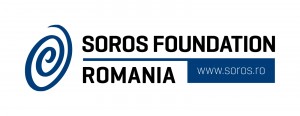by Camilla Azzini
SOROS FOUNDATION ROMANIA
In 2011, Soros Foundation has entered in its 21st year of activity in Romania.
In its first 20 years of activity, the Foundation has developed programs dedicated to education – scholarships, access to technology and internet, alternative manuals – but also to public health issues, culture, civil society and NGO development.
The Soros Foundation was the first Romanian organization to have developed a long term and exhaustive program of monitoring social changes in Romania – the Public Opinion Barometer.
The support for the development of Romania as an open society dates from 1990, when the Soros Foundation for an Open Society Association was established. Continuing to focus on critical issues for the development of the Romanian society, the Foundation currently streams its financial and human efforts towards advocacy activities, also gaining and providing substantial expertise in fields such as migration and inclusion of vulnerable and marginalized minorities, and going further with monitoring the decision-making process at both central and local levels, the fair allocation of EU funds etc.
The Foundation role in Romania is to act as a change agent for the society, sizing its most pressing problems and proposing practical solutions by combining innovation, resources and opportunity. Through our entrepreneurial approach we propose solutions to social problems and then, if worthy, scale them up on our own or through others by mobilizing outside resources. Our mission is to fuel the society with new ideas for wide-scale change.
Soros Foundation current priorities are structured into four vital areas:
Democratic Institutions – the programs intend to inform, infuse and guide public debate and policy-making towards open society values and principles. Targeted are several policy areas, as well as the specific right to access public interest information and participate in public decision-making.
Civic Culture – attempts to tackle the widespread apathy and complacency by creatively engaging the youth and supporting public-interest investigative journalism.
Inclusive Society – aims to foster inclusion and public representation of vulnerable categories; ranges from influencing future national development priorities to on-the-ground Roma housing and community design interventions. It also comprises three European funded projects that address access of Roma to the labor market, social economy and education for children and youth in destitute ethnically-mixed rural areas.
Regional Cooperation – aims to promote democratic values and practices to countries in EU’s Eastern Neighborhood - Moldova, Georgia, Armenia and Azerbaijan – while also increasing domestic knowledge and defying stereotypes about the realities and trends in these countries.
Regarding the issue of children left behind, the foundation has studied the phenomenon in terms of effects of labour migration since 2007. The study released by the foundation showed that there are 350.000 children left behind , while today’s statistics of the public institution responsible for child protection lowers the number to approximately 90.000 which indicates a bias in the data collection procedure and a change in migration patterns.
Because the legislative frame regarding the children left behind dates back from 2006 and fails to cover all the social aspects that this category of vulnerable children, their parents and social workers confront with, we have started an advocacy campaign together with the organization Save the Children Romania.
The scope of the campaign is to create a legislative frame able to protect the children left behind, in accordance with the social realities.


